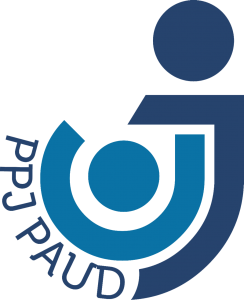The needs of children : Multiperspective study
DOI:
https://doi.org/10.26555/jecce.v4i2.6549Keywords:
the needs, children, multiperspectiveAbstract
Every human being has various needs in his life, as well as in children. Essential basic needs in children must be met so that children grow and develop optimally, but the discussion of various perspectives on children's basic needs still needs to be reviewed. Therefore, this article aims to analyze the theories of needs, the concept of basic human needs, and the needs of early childhood from scientific and Islamic studies. Literature study was used in this study. The research results obtained by students have the same needs as humans in general. Children will be happy when they are cared for, cared for, considered to exist, not discriminated against, rewarded for achievements that have been achieved, can increase self-confidence, and foster a sense of caring among others, as well as have broad insight and train children to be able to increase courage.
References
Andjarwati, T. (2015). Motivasi dari Sudut Pandang Teori Hirarki Kebutuhan Maslow, Teori Dua Faktor Herzberg, Teori X Y Mc Gregor, dan Teori Motivasi Prestasi Mc Clelland. Jmm17: Jurnal Ilmu Ekonomi & Manajemen, 2(1), 45–54. https://doi.org/10.30996/jmm17.v2i01.422
Desmita. (2016). Psikologi Perkembangan Peserta Didik. Remaja Rosdakarya.
Djalaluddin, M. M. (2015). Pemikiran Abu Ishaq Al-Syatibi dalam Kitab Al-Muwafaqat. Ad-Daulah, 4(2), 289–300.
Ellis, J. O. (2008). Psikologi Pendidikan Membantu Siswa Tumbuh dan Berkembang. Erlangga.
Fathurohman, F., & Sobari, E. (2016). Strategi Pengembangan Kinerja SDM Gugus Perwakilan Pemilik Ternak SPR Cinagarabogo Subang (Tinjauan Teori dan Aplikasi). Jurnal Dimensia, 13(2), 67–92. https://doi.org/10.17605/OSF.IO/QD8TP
Habsy, B. A. (2017). Seni Memahami Penelitian Kuliatatif Dalam Bimbingan Dan Konseling : Studi Literatur. JURKAM: Jurnal Konseling Andi Matappa, 1(2), 90–100. https://doi.org/10.31100/jurkam.v1i2.56
Hadori, M. (2015). Aktualisasi-Diri (Self-Actualization); Sebuah Manifestasi Puncak Potensi Individu Berkepribadian Sehat. Jurnal Lisan Al-Hal, 9(2), 207–222. https://journal.ibrahimy.ac.id/index.php/lisanalhal/article/view/92/79
Hagerty, M. R. (1999). Testing Maslow’s Hierarchy of Needs: National Quality-of-Life Across Time. Social Indicators Research, 46, 249–271. https://doi.org/10.1023/A:1006921107298
Hidayat, Alimul, A., & Uliyah, M. (2012). Kebutuhan Dasar Manusia Pendekatan KBK. Health Books Publishing.
Kartikasari, D., & Handayani, F. (2012). Pemenuhan Kebutuhan Dasar Manusia Pada Lansia Demensia Oleh Keluarga. Jurnal Nursing Studies, 1(1), 175–182. http://ejournal-s1.undip.ac.id/index.php/jnursing
Kaur, A. (2013). Maslow ’ s Need Hierarchy Theory : Applications and Criticisms. Global Journal of Management and Business Studies, 3(10), 1061–1064. http://www.ripublication.com/gjmbs_spl/gjmbsv3n10_03.pdf
Mendari, A. S. (2010). Aplikasi Teori Hierarki Kebutuhan Maslow dalam Meningkatkan Motivasi Belajar Mahasiswa. Widya Warta: Jurnal Ilmiah Universitas Katolik Widya Mandala Madiun, 34(01), 1–19. epository.widyamandala.ac.id/536/1/B. Anastasia Sri Mendari
Prastowo, A. (2014). Pemenuhan Kebutuhan Psikologis Peserta Didik SD/MI Melalui Pembelajaran Tematik-Terpadu. Jurnal Pendidikan Sekolah Dasar, 1(1), 1–13.
Riyanto, W. F. (2010). Pertingkatan Kebutuhan Dalam Maqasid Asy-Syari’ah. Jurnal Hukum Islam, 8(1), 44–63.
Ruswanti, E., Rosita, A. R., & Januarko, U. (2013). Aplikasi Teori Kebutuhan ERG Alderfer Terhadap Motivasi Karyawan Rumah Sakit Islam Hidayatullah Yogyakarta. Forum Ilmiah, 10(2), 165–171.
Sada, H. J. (2017). Kebutuhan Dasar Manusia dalam Perspektif Pendidikan Islam. Al-Tadzkiyyah: Jurnal Pendidikan Islam, 8(2), 213–226. https://doi.org/10.24042/atjpi.v8i2.2126
Sanjaya, W. (2013). Penelitian Pendidikan: Jenis, Metode, dan Prosedur. Prenadamedia Group.
Savitri, D. I., Degeng, I. N. S., & Akbar, S. (2016). Peran Keluarga dan Guru dalam Broken Home di Usia Sekolah Dasar. Jurnal Pendidikan: Teori, Penelitian, Dan Pengembangan, 1(5), 861–864.
Slavin, R. E. (2011). Psikologi Pendidikan: Teori dan Praktik. Indeks.
Downloads
Published
How to Cite
Issue
Section
License
Copyright (c) 2022 Yanti Kusuma, Naimah Naimah

This work is licensed under a Creative Commons Attribution-ShareAlike 4.0 International License.
Authors who publish with this journal agree to the following terms:
- Authors retain copyright and grant the journal right of first publication with the work simultaneously licensed under a Creative Commons Attribution-ShareAlike 4.0 International License that allows others to share the work with an acknowledgement of the works authorship and initial publication in this journal.
- Authors are able to enter into separate, additional contractual arrangements for the non-exclusive distribution of the journals published version of the work (e.g., post it to an institutional repository or publish it in a book), with an acknowledgement of its initial publication in this journal.
- Authors are permitted and encouraged to post their work online (e.g., in institutional repositories or on their website) prior to and during the submission process, as it can lead to productive exchanges, as well as earlier and greater citation of published work (See The Effect of Open Access).














